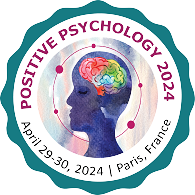
Tony Ghaye
Professor
Loughborough University London
UK
Biography
Tony Ghaye is currently the founder and Director of Reflective Learning International, a multi-disciplinary, collaborative network of practitioners who use different kinds of reflective practices to improve themselves, what they do, their workplaces and communities. He is also Chairman of Reflective Learning-Uganda and Vice President of Reflective Learning-Italy. Originally he was trained as a school teacher, became a school leader, teacher educator and then retrained as an organizational strategist and positive psychologist. He is regarded as a global leader in strengths-based leadership development through reflective practices. He has worked in many universities, most recently as International Guest Professor at Lulea University of Technology, Sweden. He has published 108 journal articles and book chapters for various audiences and written, co-authored or edited 24 academic books. He is the founder and Editor-in-Chief of the international and multi-disciplinary journal, ‘Reflective Practice’ published by Routledge Taylor & Francis Group, UK. He is a positive psychologist who has worked in 8 universities in Europe, the Far East and Australia.
Research Interest
His current research and development interests are in using strengths-based reflective practices to improve lives and livelihoods and to develop positivity, hope and resilience with individuals, organizations and communities. His skills and expertise includes Sports Science, applied positive psychology, reflective practices, strengths-based approaches to improving performance, Physical Activity, Exercise Science, Exercise Testing, Strength & Conditioning, Exercise Physiology, strength-based methods etc.

